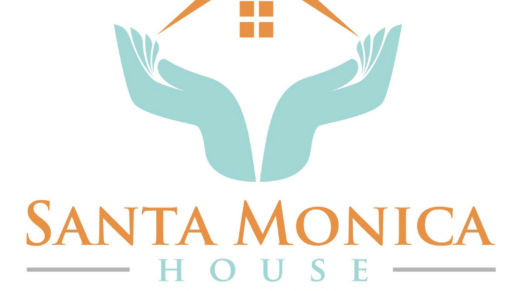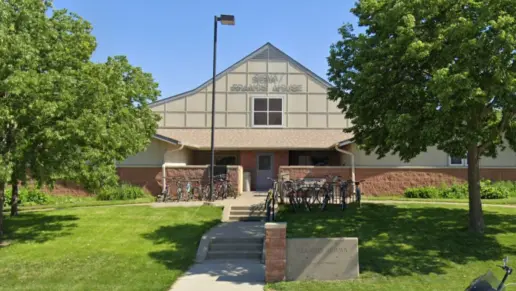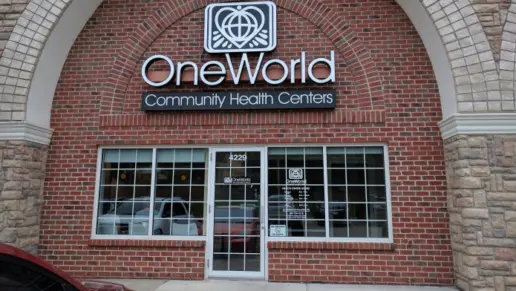this place changed my life in a big way i haven't had a drink going on 6 years now this place was a life save in and a life changer everyone was really welcoming and really caring my 45 days stay was the best it really works if you talk everything serious and work the steps ...
About Seekers of Serenity Place
Seekers of Serenity Place is an addiction treatment facility for adults, located in Columbus, Nebraska. They provide a range of services, including detox, residential and outpatient treatment, and aftercare support.
Detox provides stabilization for clients with addictions. When detox is completed in an inpatient setting, a multi-disciplinary team of providers will monitor each client’s vital signs and withdrawal symptoms to ensure the process is as comfortable as possible. When detox is completed on an outpatient basis, monitoring isn’t continuous. The length of detox and the method used vary depending on what is best for you.
Their residential program is for those who need a high level of support in the initial phases of their recovery. Basic, daily needs such as accommodations and food are taken care of throughout the duration of the stay. An individual treatment plan will be created to meet your goals and needs. Individual and group therapy are offered. Treatment will incorporate an abstinence model, 12 Steps, relapse prevention strategies, the use of interventions, and family programming. Each week, you’ll complete a minimum of 24 hours of therapeutic activity.
The 12 Step program is a common recovery model based on Alcoholics Anonymous. Beginning steps involve admitting powerlessness over the addiction and creating a plan for recovery based on a Higher Power. Middle steps include self examination and making amends to those who’ve been hurt by the addiction. The later steps include continuing to take personal inventory while living a life of recovery and supporting others in doing the same. Additional 12 Step groups include Narcotics Anonymous (NA), Cocaine Anonymous (CA), Dual Recovery Anonymous (DRA), Sex and Love Addicts Anonymous (SLAA) and Gamblers Anonymous (GA).
When clients are ready to transition into a less intensive level of care, they can participate in the facility’s outpatient services. These may be similar to those offered in inpatient treatment, but offered on a schedule that allows clients to live at home and participate in personal and professional duties. Personalized consultations and evaluations are available, along with individual, family, and group therapy. Aftercare includes referrals to local, community-based providers that can offer additional types of recovery support, which may include transportation, transitional housing, career counseling, and related resources.
They may accept most forms of commercial insurance. Ask your provider to check your coverage because out of network benefits could vary.
Latest Reviews
Rehab Score
Gallery
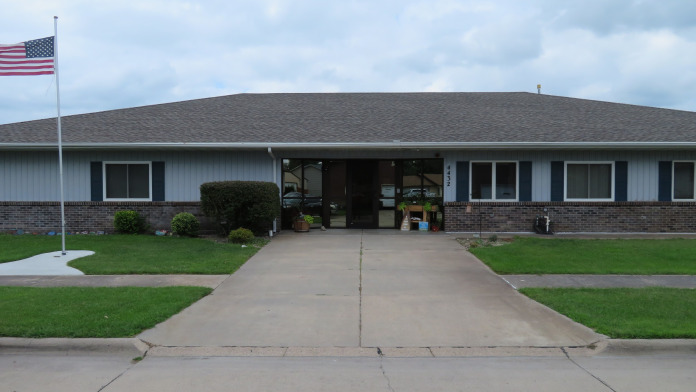
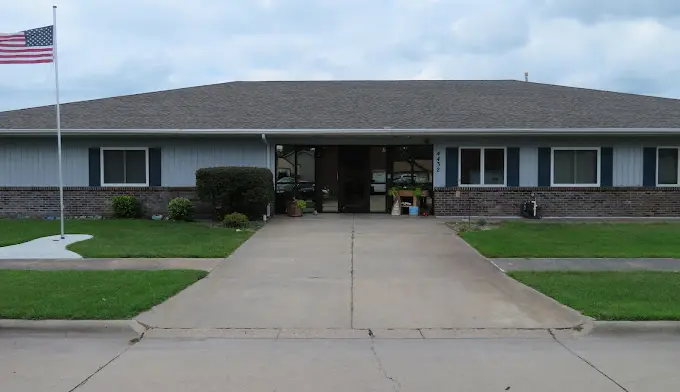
Location
Other Forms of Payment
Private insurance refers to any kind of healthcare coverage that isn't from the state or federal government. This includes individual and family plans offered by an employer or purchased from the Insurance Marketplace. Every plan will have different requirements and out of pocket costs so be sure to get the full details before you start treatment.
Self-pay involves paying for treatment out of your own pocket. You can use savings or credit, get a personal loan, or receive help from family and friends to fund your treatment. If you don't have insurance or your insurance plan doesn't cover a specific program, self-pay can help ensure you still get the care you need.
Financial aid can take many forms. Centers may have grants or scholarships available to clients who meet eligibility requirements. Programs that receive SAMHSA grants may have financial aid available for those who need treatment as well. Grants and scholarships can help you pai for treatment without having to repay.
Sliding scale payments are based on a client's income and family size. The goal is to make treatment affordable to everyone. By taking these factors into account, addiction recovery care providers help ensure that your treatment does not become a financial burden to you or your family, eliminating one barrier to care.
Medicaid is a state based program that helps lower-income individuals and families pay for healthcare. Medicaid covers addiction treatment so those enrolled can use their coverage to pay for rehab. When a program accepts Medicaid the client often pays very little or nothing out of their own pocket.
Addiction Treatments
Levels of Care
 Outpatient
Outpatient
 Inpatient
Inpatient
 Aftercare Support
Aftercare Support
 12-Step
12-Step
 Sober Living Homes
Sober Living Homes
 Intervention Services
Intervention Services
 Medically Assisted Detox
Medically Assisted Detox
Treatments
The goal of treatment for alcoholism is abstinence. Those with poor social support, poor motivation, or psychiatric disorders tend to relapse within a few years of treatment. For these people, success is measured by longer periods of abstinence, reduced use of alcohol, better health, and improved social functioning. Recovery and Maintenance are usually based on 12 step programs and AA meetings.
During drug rehab in Nebraska, you'll participate in therapies that address the many issues that contribute to addiction. Treatment includes physical, mental, emotional, and relational aspects. These methods provide the tools you need to achieve long-term recovery.
Many of those suffering from addiction also suffer from mental or emotional illnesses like schizophrenia, bipolar disorder, depression, or anxiety disorders. Rehab and other substance abuse facilities treating those with a dual diagnosis or co-occurring disorder administer psychiatric treatment to address the person's mental health issue in addition to drug and alcohol rehabilitation.
Opioid rehabs specialize in supporting those recovering from opioid addiction. They treat those suffering from addiction to illegal opioids like heroin, as well as prescription drugs like oxycodone. These centers typically combine both physical as well as mental and emotional support to help stop addiction. Physical support often includes medical detox and subsequent medical support (including medication), and mental support includes in-depth therapy to address the underlying causes of addiction.
Substance rehabs focus on helping individuals recover from substance abuse, including alcohol and drug addiction (both illegal and prescription drugs). They often include the opportunity to engage in both individual as well as group therapy.
Programs

Adult Program

Young Adult Program

LGBTQ Program

Military Program
Clinical Services
Cognitive Behavioral Therapy (CBT) is a therapy modality that focuses on the relationship between one's thoughts, feelings, and behaviors. It is used to establish and allow for healthy responses to thoughts and feelings (instead of unhealthy responses, like using drugs or alcohol). CBT has been proven effective for recovering addicts of all kinds, and is used to strengthen a patient's own self-awareness and ability to self-regulate. CBT allows individuals to monitor their own emotional state, become more adept at communicating with others, and manage stress without needing to engage in substance abuse.
Dialectical Behavior Therapy (DBT) is a modified form of Cognitive Behavioral Therapy (CBT), a treatment designed to help people understand and ultimately affect the relationship between their thoughts, feelings, and behaviors. DBT is often used for individuals who struggle with self-harm behaviors, such as self-mutilation (cutting) and suicidal thoughts, urges, or attempts. It has been proven clinically effective for those who struggle with out-of-control emotions and mental health illnesses like Borderline Personality Disorder.
Group therapy is any therapeutic work that happens in a group (not one-on-one). There are a number of different group therapy modalities, including support groups, experiential therapy, psycho-education, and more. Group therapy involves treatment as well as processing interaction between group members.
In individual therapy, a patient meets one-on-one with a trained psychologist or counselor. Therapy is a pivotal part of effective substance abuse treatment, as it often covers root causes of addiction, including challenges faced by the patient in their social, family, and work/school life.
Often used to address addiction in Nebraska, motivational interviewing helps you become motivated to change. Research shows this method is effective for clients who are unprepared for change or feel unmotivated to change.
Trauma therapy addresses traumatic incidents from a client's past that are likely affecting their present-day experience. Trauma is often one of the primary triggers and potential causes of addiction, and can stem from child sexual abuse, domestic violence, having a parent with a mental illness, losing one or both parents at a young age, teenage or adult sexual assault, or any number of other factors. The purpose of trauma therapy is to allow a patient to process trauma and move through and past it, with the help of trained and compassionate mental health professionals.
Whether a marriage or other committed relationship, an intimate partnership is one of the most important aspects of a person's life. Drug and alcohol addiction affects both members of a couple in deep and meaningful ways, as does rehab and recovery. Couples therapy and other couples-focused treatment programs are significant parts of exploring triggers of addiction, as well as learning how to build healthy patterns to support ongoing sobriety.
Research clearly demonstrates that recovery is far more successful and sustainable when loved ones like family members participate in rehab and substance abuse treatment. Genetic factors may be at play when it comes to drug and alcohol addiction, as well as mental health issues. Family dynamics often play a critical role in addiction triggers, and if properly educated, family members can be a strong source of support when it comes to rehabilitation.
Signs that you have become dependent on nicotine include smoking more than one pack a day, smoking within five minutes of waking up, and smoking to avoid withdrawal symptoms. Fortunately, nicotine replacement therapy in Nebraska can help you break this dependence and work toward a nicotine free lifestyle.
Amenities
-
Residential Setting
-
Private Rooms
Accreditations

State Licenses are permits issued by government agencies that allow rehab organizations to conduct business legally within a certain geographical area. Typically, the kind of program a rehab facility offers, along with its physical location, determines which licenses are required to operate legally.
State License: Nebraska

The Joint Commission, formerly known as JCAHO, is a nonprofit organization that accredits rehab organizations and programs. Founded in 1951, the Joint Commision's mission is to improve the quality of patient care and demonstrating the quality of patient care.
Joint Commission Accreditation: Yes
Contact Information
4432 Sunrise Place
Columbus, NE 68601
